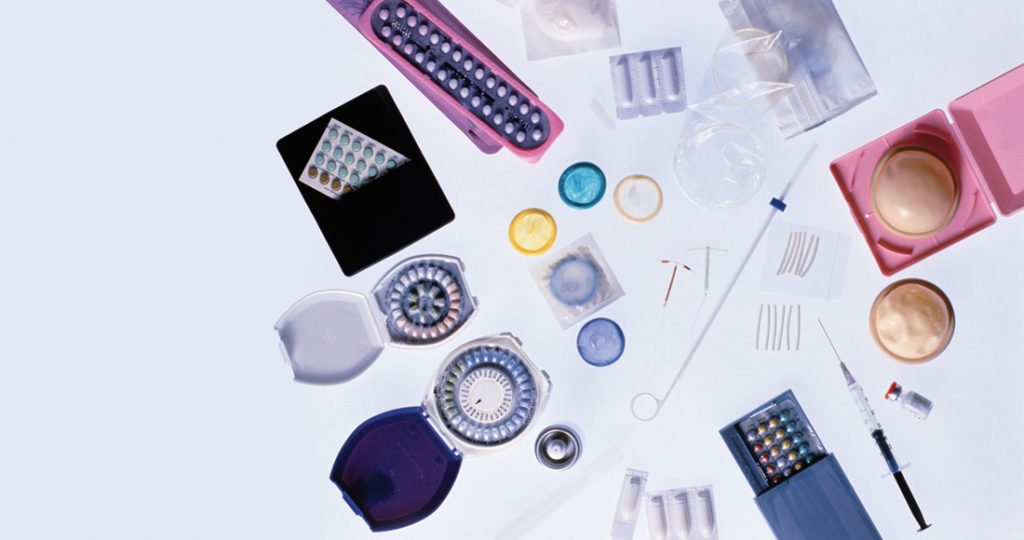6 contraceptive pros and cons

A brief outline to help you decide which female contraceptive suits you best.
There are many different kinds of female contraceptives available today. Anne Hahn provides a brief outline to help you decide which one suits you best.
1. THE FEMALE CONDOM
This is a thin plastic sheath that women can insert to prevent sperm from reaching the eggs in the womb.
THE PROS
- It offers short-term contraception
- It protects against infections as well as providing a barrier to male sperm
THE CONS
- It needs careful placement in order to work effectively
- If it tears, emergency contraception is needed
NB: Condoms (male and female), if used correctly, are the only contraceptives that protect against HIV infection. It’s recommended to use condoms together with your preferred contraceptive to protect against HIV and pregnancy.
2. THE PILL
Two oral contraceptive pills are available that prevent the release of an egg every month – the combination pill, which combines the hormones oestrogen and progestin and must be taken every day for three weeks of every month, and the mini-pill, a progestin-only pill which must be taken daily.
THE PROS
- Convenience Contraceptive pills can reduce period pain and offer relief from heavy periods for some women
THE CONS
- Some medications, such as those for epilepsy and TB, interfere with the pill’s effectiveness
- The combination pill is not suitable while breastfeeding or for women over the age of 35 who are smokers
- Headaches, breast tenderness and dizziness can occur
- Some women experience frequent or irregular bleeding on the mini-pill, or no periods at all
- The mini-pill has to be taken at the same time every day, so if you are not good about remembering times, it might not be effective
- Vomiting and/or diarrhoea can interfere with both pills’ effectiveness
3. INJECTIONS
Injections containing the hormone progestin prevent male sperm from reaching the womb and stop the monthly release of the woman’s egg for two or three months.
THE PROS
- This is a convenient and discreet method (no one knows you are using it)
- It can reduce heavy bleeding
THE CONS
- Some women experience headaches, mood changes, dizziness or bloating
- There might be heavy bleeding or irregular periods for the first three months
- Once you have had the injection, if you have side effects, you will have to wait for the injection to wear off
- You need to have regular follow-up injections for it to be effective. If you are more than two weeks late for the next injection, there is a risk of not being protected against pregnancy
4. IMPLANTS
A matchstick-sized implant, positioned under the skin on the upper arm, releases progestin to prevent pregnancy for up to three or five years, depending on the implant used.
THE PROS
- It provides long-term protection
- It is easily reversible; if you decide you want to fall pregnant, your fertility will return to normal one month after removal of the implant
THE CONS
- Bleeding patterns change, especially in the first three months.
- If random periods continue, they can be treated with additional medication
- Some women experience headaches, mood changes, acne or weight loss or gain
5. IUD
The IUD (intrauterine device) is a T-shaped copper and plastic device that provides up to 10 years of protection against pregnancy by damaging sperm and preventing sperm and eggs from connecting
THE PROS
- These provide long-term protection
- They can be easily removed if you want to fall pregnant
THE CONS
- Some women experience extreme pain and have to have them removed after a few days
- Heavier bleeding and spotting between periods is common in the first few months
- Risks include infection, damage to the womb or the device could fall out and need to be replaced
6. IUS
The IUS (intrauterine system) is similar to the IUD except that it releases hormones to prevent pregnancy for up to five years.
THE PROS
- It provides long-term protection Helps reduce heavy and painful periods
- Easily reversible and can be removed if you want to fall pregnant
THE CONS
- Some women experience headaches, mood changes, acne, breast tenderness or weight gain, but these usually resolve within the first few months
CONFUSED?
The Marie Stopes website has a short quiz that helps you find the best fit for your needs. See sa.msi.tclhosting.co.uk
ASK AN EXPERT
JET CLUB MEMBERS HAVE FREE ACCESS TO JET CLUB’S HELPLINES.
For Guidance And Advice From Our Medical Experts Call Personal Health Advisor
SA & Namibia
0800 0045 45
Botswana, Lesotho & Swaziland
+2711 991 8258
Related articles

Latest Jet club magazine
We’ve got the latest trends, exciting prizes and exclusive savings just for you!
Jet Club will not pass your details to anyone else. By clicking the subscribe button you confirm you have read and agree to the Jet Club Terms and conditions and Jet Club Privacy Statement.
Subscribe

